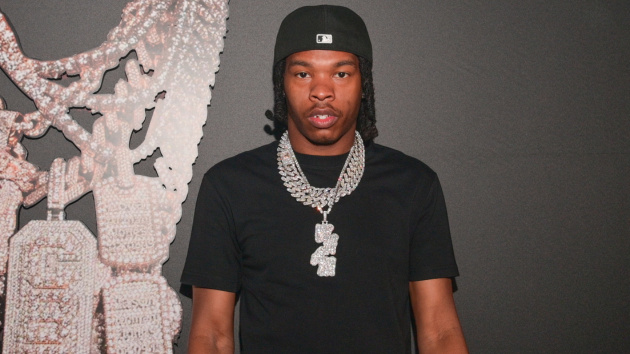The Rapper Refuses to Be the Scapegoat
Lil Baby isn’t staying silent after Atlanta police tried to pin some of the city’s latest tragic violence on him. Following a tense press conference where Atlanta Police Homicide Commander Maj. Ralph Woolfolk suggested the rapper’s May 2024 music video shoot sparked the deadly feud between two gangs, Lil Baby made it crystal clear—he’s not having it.
The accusations were heavy. Woolfolk painted the rapper’s shoot as a reckless stunt, calling it a “cowardly act” that escalated into chaos. Two 13-year-old boys, Lamon Fremon and JaKody Davis, were shot and killed, and an 11-year-old, Dontavious Davis, was wounded in the aftermath. Seven men have been arrested in connection to the violence, but Lil Baby insists his name shouldn’t even be in the conversation.
Lil Baby, known off-stage as Dominique Jones, quickly fired back with his own response, first thanking fans for their support and then slamming the narrative as “fake news.” But it didn’t stop there—his legal team stepped in with even sharper words for the police department, making it clear this fight is far from over.
The Accusations That Sparked the Firestorm
Atlanta police didn’t mince words when they pointed fingers at Lil Baby’s music video shoot as the alleged catalyst for a tragic chain of events. According to police, the shoot took place in a neighborhood already simmering with tension between the 4PF (Four Pockets Full) and OMF (Only My Family) gangs—two groups authorities say are entangled in ongoing turf wars.
During the May 2024 shoot, a shooting erupted, leaving three men injured. Police claim that the violence that day wasn’t just an isolated incident but the spark that triggered months of retaliation, bloodshed, and heartbreak, eventually leading to the deaths of the two 13-year-olds. With a mix of street beef and social media escalation, the situation spiraled out of control, turning the summer into one of Atlanta’s deadliest.
Even more shocking, arrest warrants for seven suspects named Lil Baby as the alleged leader of OMF, linking him directly to the broader gang activity. The Goodfellas street gang, described as “hyperviolent” by law enforcement, allegedly has OMF as one of its subsets—placing Lil Baby, at least in the police’s version of events, near the top of the food chain.
Lil Baby Breaks His Silence and Fights Back
Lil Baby isn’t just brushing off the allegations—he’s coming out swinging. Late Thursday night, he took to Instagram to address his fans directly. With a quick thank you for their loyalty and a warning not to fall for “fake news,” the rapper made it clear he’s not going down without a fight.
By Friday, his legal team, Drew Findling and Marissa Goldberg, stepped in to double down, calling the police’s claims “complete and total nonsense.” They slammed the suggestion that Lil Baby personally chose the video’s location, stressing that a full team of professionals handles those logistics. Painting him as some kind of kingpin calling the shots on gang turf, they argued, was both “unprofessional” and “shameful.”
The lawyers also reminded the public of something critical—Lil Baby isn’t just some random superstar parachuting into Atlanta for clout. This is his city, his home, and the very place he’s spent years trying to uplift. The idea that he would endanger the community he’s constantly working to support is, in their eyes, not just absurd—it’s insulting.
More Than Legal Defense—A Personal Plea
Beyond the legal posturing, there’s a deeply personal side to Lil Baby’s frustration. According to his attorneys, the deaths of Lamon Fremon and JaKody Davis hit especially close to home. These weren’t nameless statistics to him—these were kids from the same blocks where he grew up, navigating the same struggles he once faced.
While police paint him as a criminal mastermind, Lil Baby’s team says he sees himself as a product of Atlanta’s streets who’s worked tirelessly to open doors for others. From investing in community programs to providing school supplies for kids, he’s been on the ground trying to break cycles of violence, not feed them. The pain of watching young lives cut short in neighborhoods he holds dear isn’t just professional—it’s personal.
Lil Baby, they insist, will keep working to uplift his community, regardless of the accusations swirling around him. In their view, the police should be working with him, not against him, if they truly want to make Atlanta safer for its kids.
This Fight is Far From Over
The case remains under active investigation, and whether Lil Baby will face further legal action is still uncertain. What is certain is that Lil Baby isn’t backing down quietly. His attorneys have made it clear they’re not afraid to challenge what they see as a reckless, unfair targeting of their client—a man they say is being scapegoated simply because of his success and background.
As the legal process unfolds, Lil Baby’s battle isn’t just about clearing his name. It’s about pushing back against the narrative that successful Black artists are automatically suspect in the eyes of the law. With his WHAM World Tour on the horizon and his reputation on the line, Lil Baby seems ready to fight for both his freedom and his legacy.
In the meantime, Atlanta watches closely—because whether in courtrooms, on social media, or on stage, Lil Baby’s next moves will shape how this story gets told.
